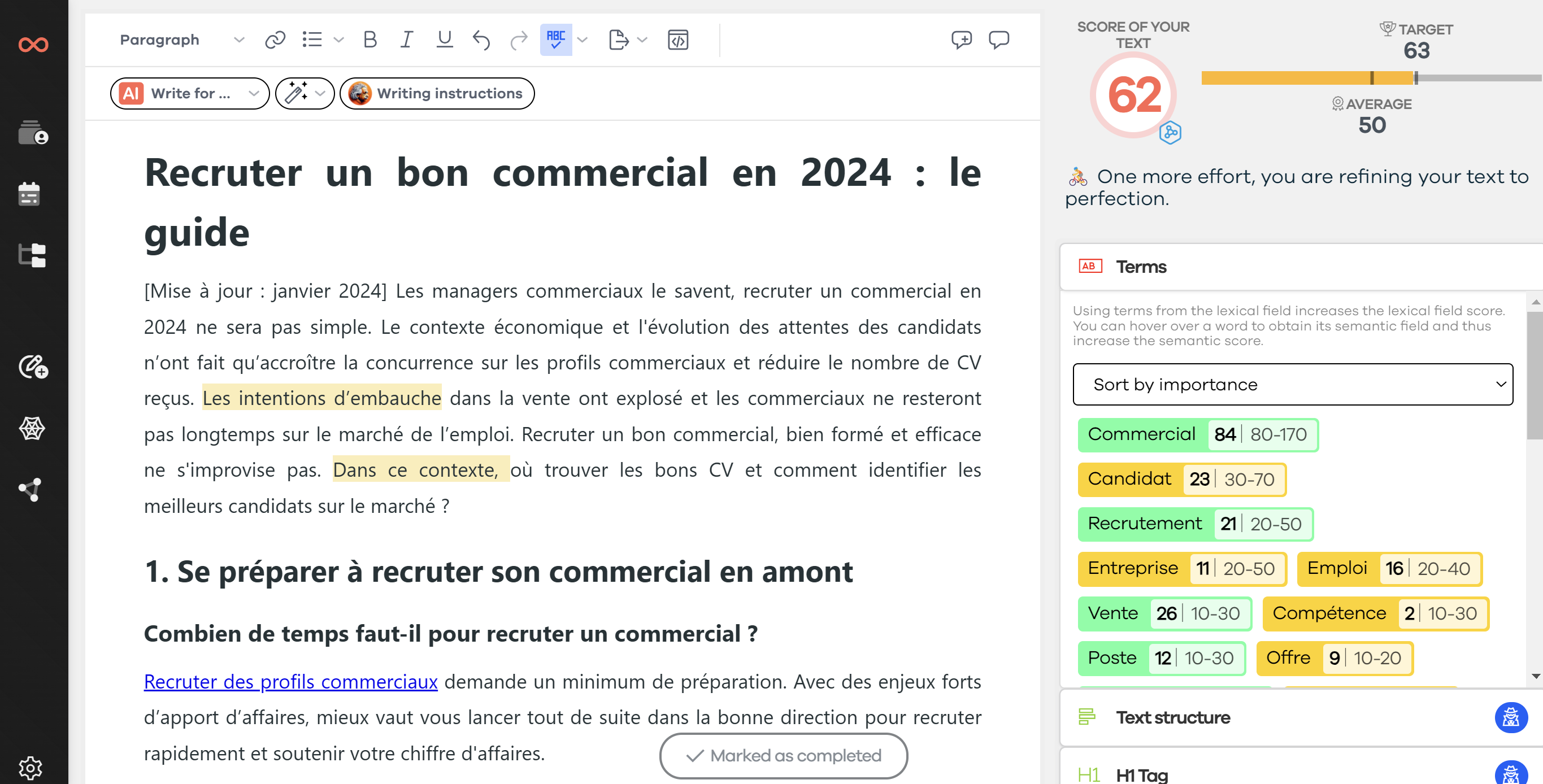Many SEO consultants focus on search volume to create a keyword list. This is a mistake!
Even though it allows for easy estimation of organic traffic potential and pleases the client, this view is limiting and prevents seeing opportunities to attract many more visitors.
🚀 Quick Read: Summary of what you will learn about SEO keyword search volume
Did you still think that search volume is essential for setting up your editorial strategy? It's never too late to change! Here are the key insights you will discover as you continue reading.
- The reasons why keyword search volume is not relevant.
- The example of an article optimized around a keyword with a monthly search volume of 350 and attracting over 2,000 visitors per month!
- The limitations of search tools for creating a high-potential keyword list.
- How Google's algorithm works to understand queries
- The solution proposed by SEOQuantum
❓ Why does keyword search volume no longer optimize SEO?
There are plenty of methods and tools for keyword research that promise to help you find the best phrases. A little-used (and therefore less competitive) key phrase with high search volume is the SEO Holy Grail.
- The search volume of a word is considered the key factor to consider before deciding whether or not to write an article on a given topic.
- Keyword competition (calculated based on domain authority) is another criterion often used to determine ranking chances. When well-ranked pages on a phrase contain a large number of inbound links, the difficulty is considered high.
SEO consultants who use this method believe that the perfect keyword has a high monthly search volume and low competition.
This is a simplified explanation of the keyword research process. Some people use Google's Keyword Planner tool, while others choose to use a third-party tool.
But, regardless of your method, one problem remains: approaches that consider monthly search volume as the main criterion are problematic**. In fact, HUBspot was already talking about it in 2014
Indeed, pages do not rank solely on a search term, because that's not how search engines work. Thanks to various Google updates (Hummingbird, Rank Brain, BERT...), the search engine can associate content and search intent. Thus, key queries with low organic search volume hide real potential.
A concrete example: 24 times more traffic than estimated

This page was created to target a low-traffic keyword: "gift idea for pregnant woman" with about 350 searches/month estimated by Ahrefs.
Considering that on average 27.6% of users click on the first link displayed[2] in the SERP, we could expect traffic of approximately 96 visitors per month if this page reached the first position on Google.
Only 10 months after publication, the article generates 2,301 visitors (November 2019) and is positioned on over 900 keywords with even higher search volumes.
That's nearly 24x the initially expected traffic!
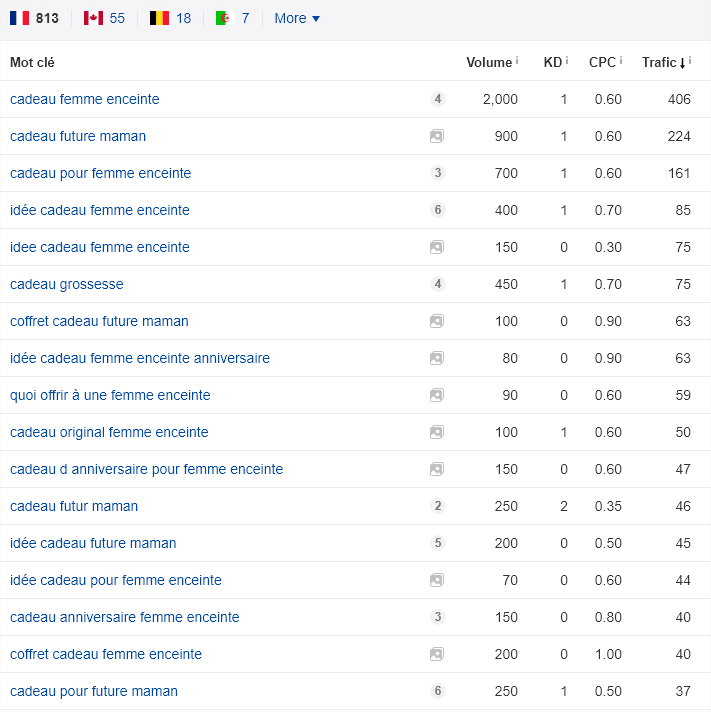
In summary
An article targeting a low-volume keyword can also rank on hundreds of other words. The actual traffic will exceed what your tool predicted!
Moreover, if you only choose low-competition words and those belonging to the long tail, your site may disappoint visitors with fragmented content.
😶🌫️ The failure of keyword research tools to improve content quality
I sometimes hear some SEOs optimize their content "thanks" to keyword research tools. Keyword research is not beneficial when it comes to creating content! It has nothing to do with your research skills and everything to do with the nature of the tool.
These tools are not suited for creating semantic relationships between topics. So, when you type "SEO writing" into a traditional keyword research tool, the relevant words it suggests leave much to be desired. Here's an example of a list created by a free keyword tool.
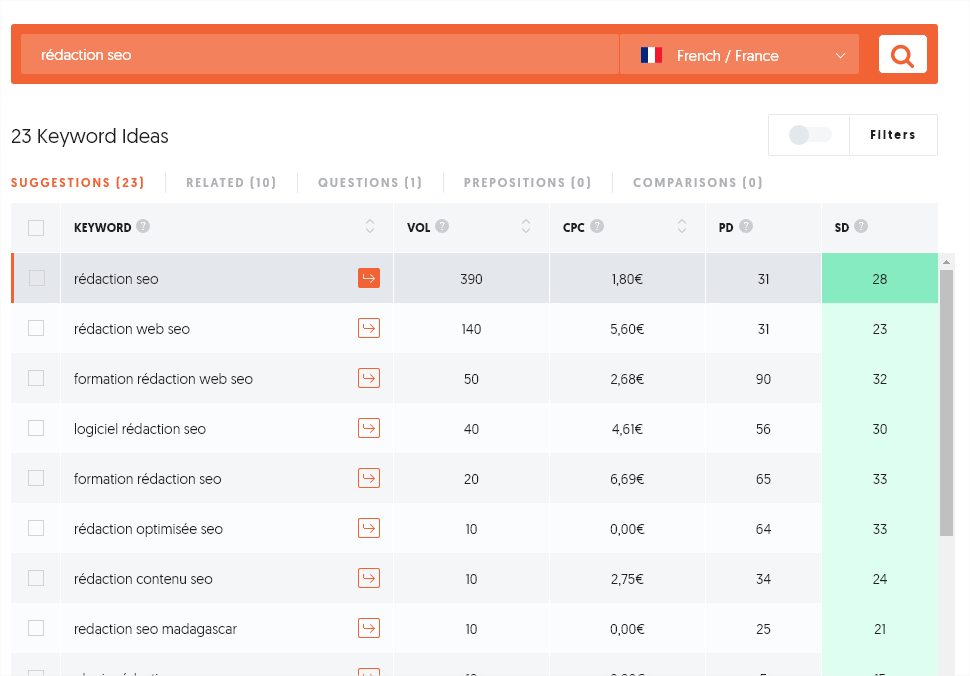
A list of keywords on the theme "SEO writing" by Ubersuggest
Unfortunately, these suggestions are often too general. Concepts must indeed be addressed in depth to create a comprehensive publication. That's where the crux of the problem lies!
Compare the list with the data provided by SEOQuantum:
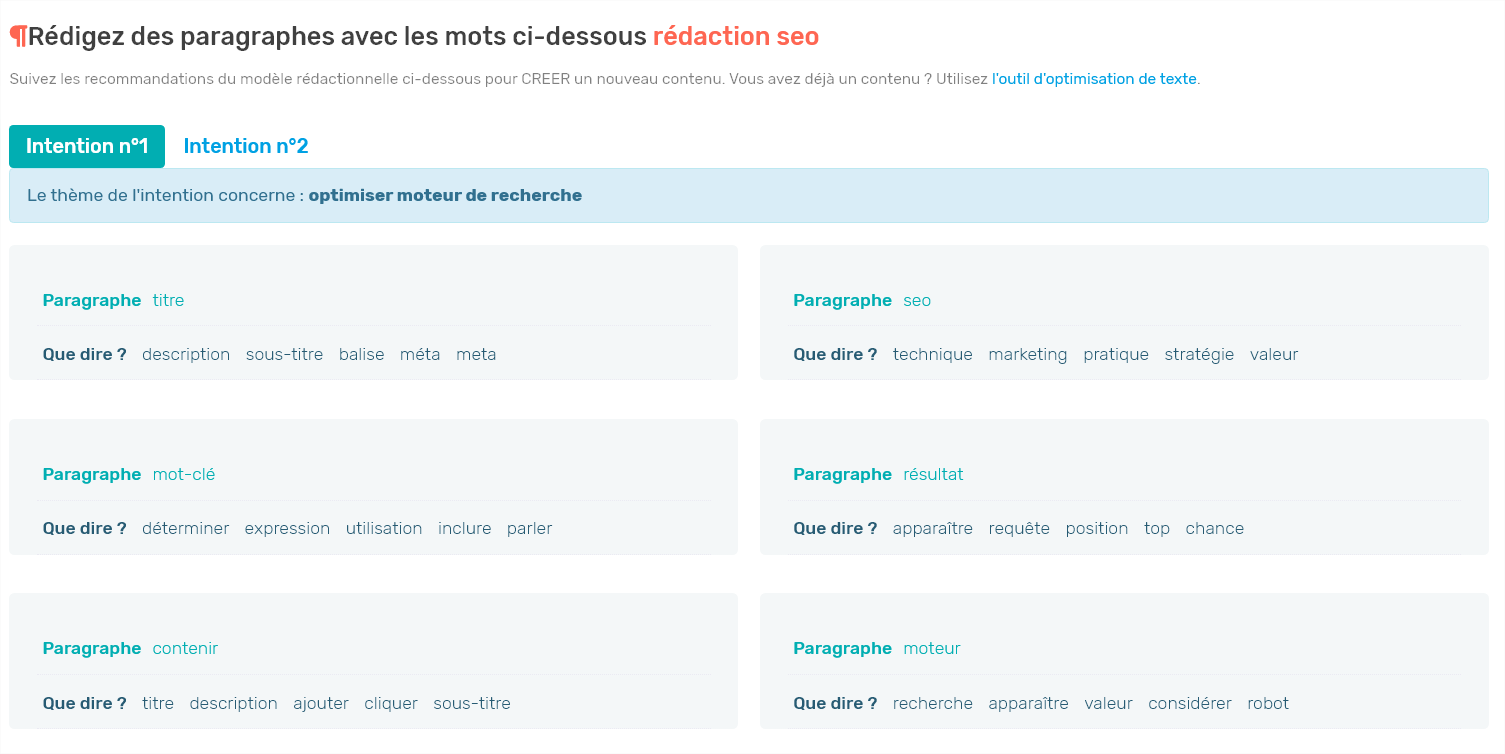
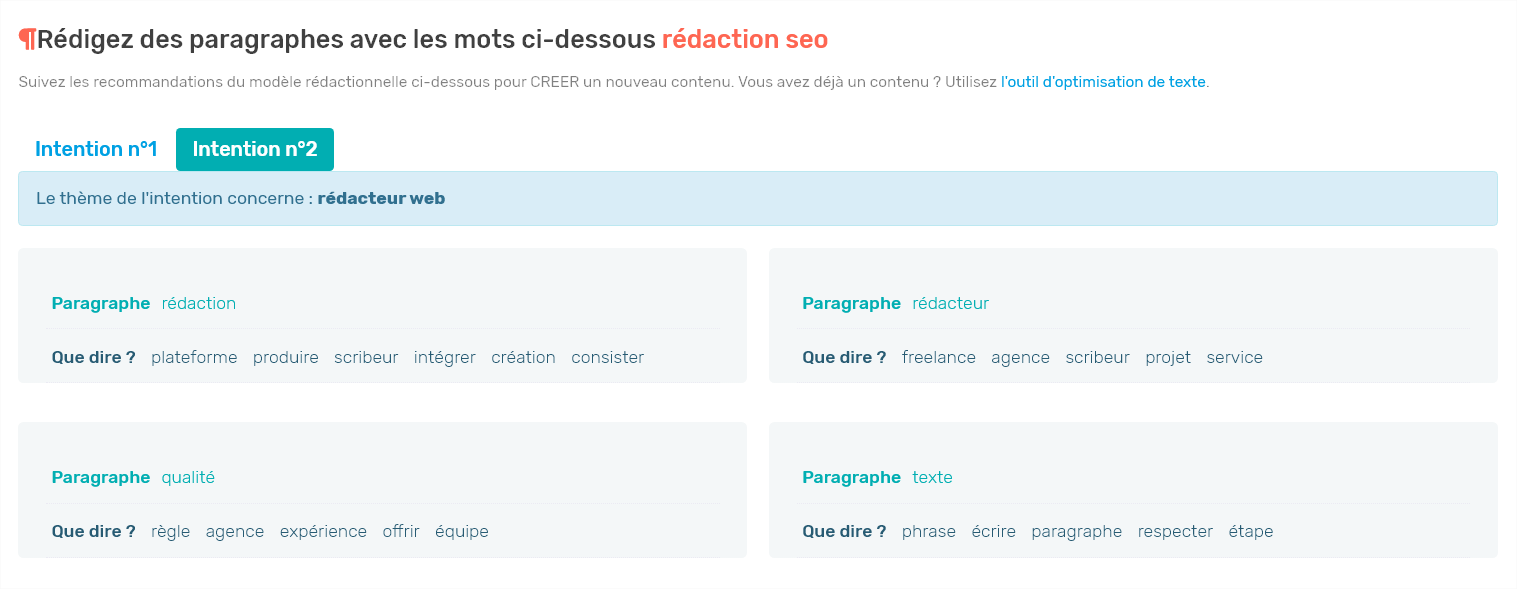
A semantic analysis report is built by analyzing thousands of web pages for this topic. The list of related topics is grouped by semantic relevance. The key topics that must be covered when writing an article on "SEO writing" are immediately identifiable (here, search engine optimization and web copywriter).
⚙️ Google's operation does not rely on keywords
If keywords are the basis of your content, then you're doing it all wrong!
Example of a Google search
Here's an example: type the search term "in which movie is it said that there are two types of people in life."

None of the results in this SERP use the key phrase I used in my search. Notice that Google has substituted the word "types" with "categories."
How does Google select the most relevant results? It relies on semantics to find features and related topics rather than a single name or word.
The "other questions asked" displayed in the SERP
Here's another example where search volume is not a determining factor for estimating your SEO traffic! Let's take the previous query "SEO writing."
You'll notice that the "other questions asked" are just below position zero. The articles offered in this category therefore have a high potential click-through rate!
However, if you only rely on keyword research tools, you will never find this idea. Indeed, SEMRush does not display search volume for this query.

This once again demonstrates Google's ability to interpret the user's search intent and understand the overall content without focusing on a keyword.
🎯 Using tools to create quality content
Write for your readers and give them all the information they need, and Google will reward you! To achieve this, you just need to use a powerful tool.
Equip yourself with a semantic analysis tool for your pages
Keyword research does not simplify content creation. But if you think that adding a few keywords from TF-IDF here and there will suffice, think again!
So, stop dwelling on keywords and their search volume. Focus on topics! Don't worry about search volume. Instead, pay attention to search intent and work on the semantic field to provide complete and detailed information to Google.
Use semantic analysis reports to better understand which concepts need to be addressed and to ensure the comprehensiveness of your text.
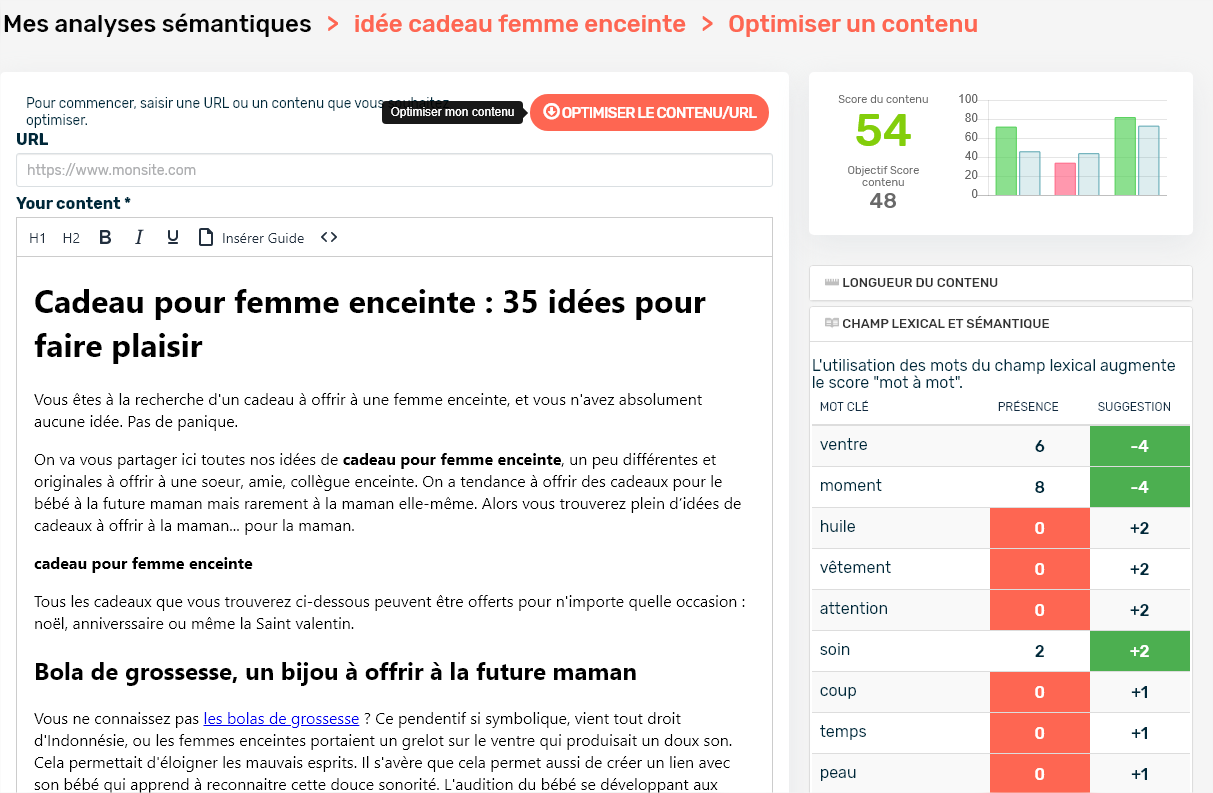
Adopt a method of high-performance content strategy with the thematic cluster tool
Thematic clusters are a grouping of keywords based on their theme and the topics covered. With this tool, you can identify and correctly respond to user intent and create content in a relevant way (see above).
The tool also allows you to determine where the gaps are, not only in your content strategy but also in those of your competitors.
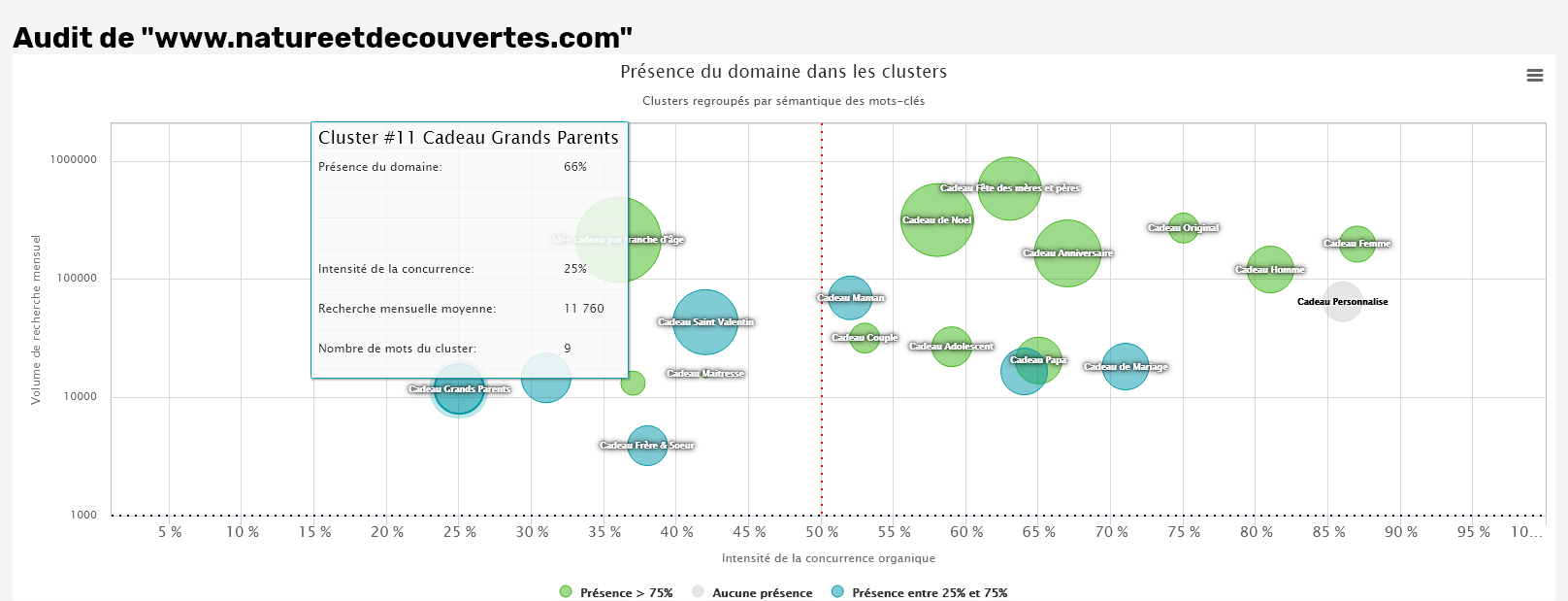
Nature et Découverte used SEOQuantum, including the thematic cluster tool, to:
- Increase their organic traffic
- Outrank their main competitors.
- Appear multiple times on the same results page
Don't forget to inventory your content. Often, existing pages can be enriched or reworked to provide better topic coverage.
🎬 Conclusion
For SEO consultants, keyword search volume is a great way to "sell" a query to their client. The client sees the numbers and easily understands the potential for SEO traffic for their business site. However, even if it works, it's not the best strategy.
It is, of course, difficult to estimate the number of keywords on which content will rank. Thus, it's more complicated to persuade a site owner to write content this way.
The solution is simple! Keep in mind the example presented in this article and find others. This clearly demonstrates the importance of focusing on quality and comprehensiveness of content rather than the search volume of a single keyword.
🙏 Sources used to write this article
[1] https://blog.hubspot.com/marketing/why-search-volume-doesnt-matter
Need to go further?
If you need to delve deeper into the topic, the editorial team recommends the following 5 contents:

